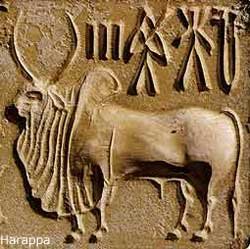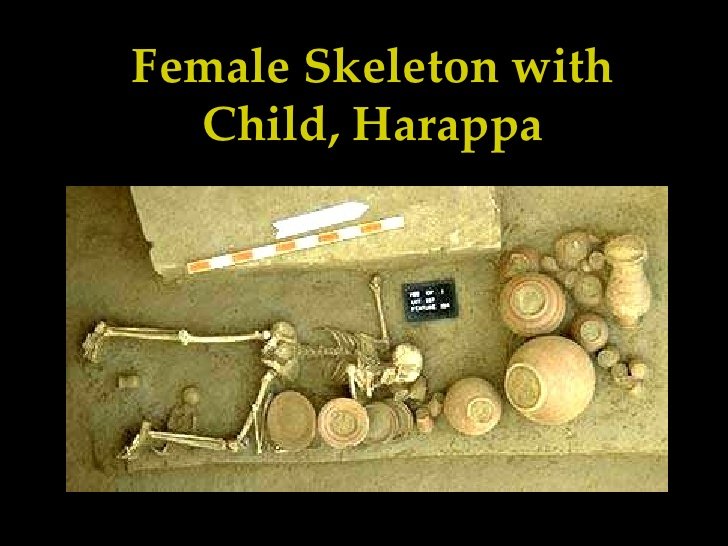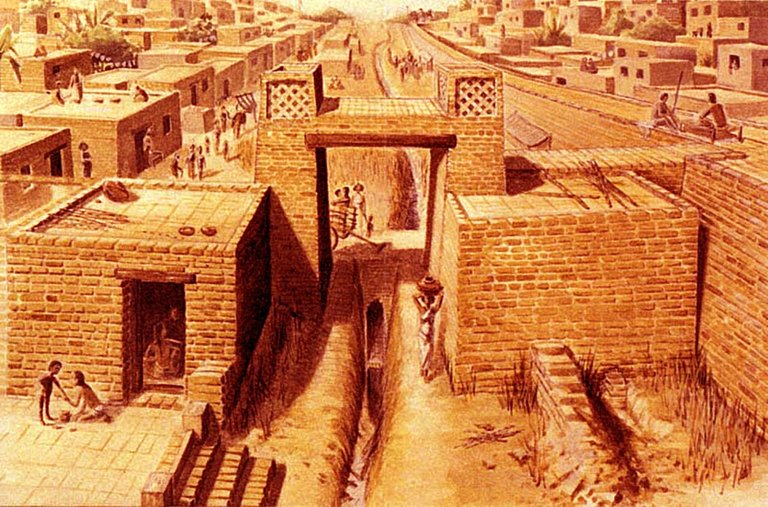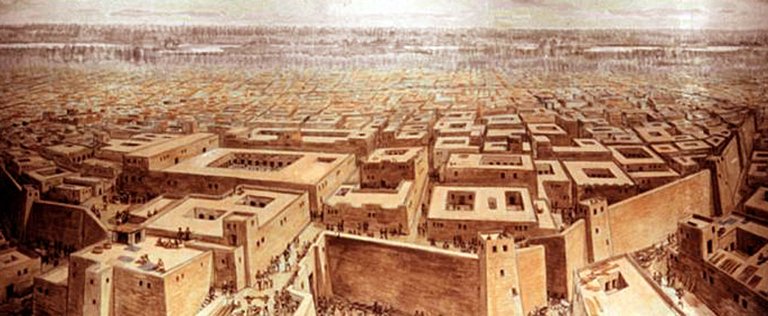Harappa (Punjabi pronunciation: [ɦəɽəppaː]; Urdu/Punjabi: ہڑپّہ) is an archaeological site in Punjab, Pakistan, about 24 km (15 mi) west of Sahiwal. The site takes its name from a modern village located near the former course of the Ravi River which now runs 8 km (5.0 mi) in north. The current village of Harappa is less than 1 km (0.62 mi) from the ancient site. Although modern Harappa has a legacy railway station from the period of the British Raj, it is today just a small crossroads town of population 15,000.
The site of the ancient city contains the ruins of a Bronze Age fortified city, which was part of the Indus Valley Civilization centered in Sindh and the Punjab, and then the Cemetery H culture.[1] The city is believed to have had as many as 23,500 residents and occupied about 150 hectares (370 acres) with clay brick houses at its greatest extent during the Mature Harappan phase (2600–1900 BC), which is considered large for its time.[2][3] Per archaeological convention of naming a previously unknown civilization by its first excavated site, the Indus Valley Civilization is also called the Harappan Civilization.



Hi! I am a robot. I just upvoted you! I found similar content that readers might be interested in:
http://www.mansoormehdi.com/2017/07/harappa.html